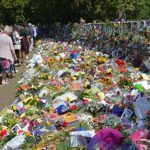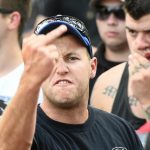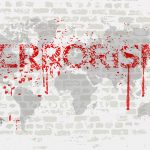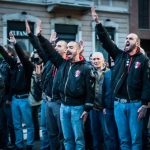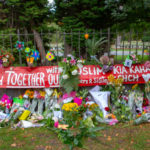The Myth of the Far-Right Lone Actor: An Interview With Researcher Dr Kaz Ross
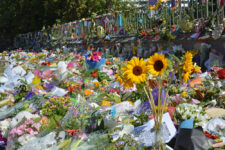
Monday, 15 March 2021 marks the second anniversary of the Christchurch massacre: a terrorist attack that involved an Anglo Australian man entering two mosques in the largest city on NZ’s South Island and gunning down multiple victims, 51 of whom were killed, with 40 injured.
The then 28-year-old Australian man grew up in the northern NSW town of Grafton. By his own account, he comes from “Scottish, Irish and English stock”. And he was obsessed with far-right, white nationalist ideology.
Now serving life imprisonment without chance of parole, the Christchurch killer had written a 74 page manifesto called The Great Replacement, in which he outlines the idea that there’s a white genocide taking place globally, which is a common belief amongst individuals of the far-right.
The Australian born and bred terrorist is usually referred to as a lone actor, as he perpetrated his crimes on his own. But, as independent researcher Dr Kaz Ross points out, his actions and rhetoric are hardly the product of isolation.
It’s okay to be far-right
The federal Coalition is renowned for its resistance to condemn far-right grassroots organisations in this country.
The existence of these groups goes back decades. However, over the last six years, there has been a marked rise in their appearance on the streets, as well as online.
ASIO boss Mike Burgess explained in October that up to 40 percent of his security agency’s workload is now taken up with surveilling the far-right. While Labor home affairs shadow minister Kristina Keneally has been pushing for Australia to start listing far-right groups as terrorist organisations.
But despite the Australian perpetrated Christchurch massacre occurring on his watch, home affairs minister Peter Dutton has been actively resisting the idea of banning local far-right organisations. Indeed, every time the issue is put to him, he deflects by raising a so-called “far-left” threat.
Dutton finally came to the table last week, when he announced that he is considering placing a far-right group on this nation’s list of proscribed terrorist organisations. However, the group he’s chosen to begin with is based in the UK and doesn’t really have a presence over here.
A whites only policy
The existence of white nationalists in Australian suburbia is hardly surprising when you consider the nation was founded upon the exclusionary White Australia immigration policy. Indeed, this may point to why some federal politicians are reluctant to condemn white nationalists.
Dr Kaz Ross is an independent researcher into far-right extremism, racism and conspiracy theories. She posits that the idea of the lone right-wing actor is something of a myth, when the huge online network they plug into means they’re in an exchange with others and acting with them in mind.
Sydney Criminal Lawyers spoke to Dr Ross about how the pandemic has allowed the far-right to expand, why the “far-left threat” doesn’t hold, and the problem with putting everything down to shitposting: the ironic sharing of deliberately provocative comments online.
Last week, Peter Dutton announced the government is considering listing UK-based neo-Nazi group Sonnenkrieg Division as a terrorist organisation.
Dr Ross, what are your thoughts on the home affairs minister’s decision to finally consider listing white nationalist groups as terrorists? And what about his decision to commence with this particular group?
My first reaction is that I’m relieved that we are finally starting a conversation about white nationalists and right-wing extremists in the framework of terrorism. But I’m concerned about the framing of it.
In terms of white nationalists and right-wing extremists, we have a very unsophisticated analysis in Australia, where we are not differentiating between a hate group and a terrorist group.
Canada has designated the Proud Boys as a terrorist group, and I’m concerned Australia might do the same, as the local Proud Boys are clearly not a terror group.
We need to be clear about our framing here, so we don’t just say all hateful groups are terrorist groups.
But I am bemused by Dutton mentioning Sonnenkrieg. It’s a small group with no purchase in Australia at all. It’s just one in a collection of groups that are part of an underlying extremist ideology.
It points to a weakness in this approach of proscribing groups, because groups may change, and they do change. These groups don’t always have a defined membership, particularly if they’re internet based, and people may not even be aware they’re a member of a group.
The belief is you have a bunch of people who meet online and become radicalised. They then get together in real life, start doing activities and become terrorists. This idea comes out of the UK experience. But it doesn’t always go like that.
It’s absolutely possible that there are some people online that are shitposting in this space and are not even aware that what they’re doing would count them as being members of a group.
The main issue is we’re going to ban a group that has no real impact at all in Australia, so what’s the point of doing that? What’s the aim?
The approach is wrong. The approach should be let’s look at Sonnenkrieg and other extremist groups and identify their underlying beliefs and the statements they make. Then we can recognise them and educate people.
Say you get a 16-year-old shitposting about hanging Jewish people. Is that shitposting or is it a genuine threat? What makes it a genuine threat?
Last weekend, a person in Christchurch was posting on 4chan about setting off car bombs at mosques. The police have since charged that person with threatening to murder. They took it very seriously.
But some people would call that simply shitposting online. They’re just mouthing off and they’re not really going to do anything. However, Christchurch, because of their lived experience, are aware that shitposting online can sometimes mean real life action.
There were two guys involved. They were raided. And one of them has been charged. I doubt that that kind of action would have happened in Australia.
The problem with just saying it’s this group or that group is that it’s like picking a mushroom and saying that’s it, rather than identifying the mushroom is simply the fruiting body of the underlying mycelium, which is all through the soil.
Saying we’re going to ban Sonnenkrieg is like saying we’re just banning the mushroom, without looking at the network that produced it and will produce others.
Proscribing the group is the end point of the process. The start is working out what’s this ideology? What’s the framework? How do we recognise it when we see it? How do people themselves recognise that they’re being caught up in it? And being clear about that.
As part of your research into far-right groups, you’ve been monitoring their activities online. In December, you wrote in the Conversation that the pandemic and its impact on the Australian community have allowed these groups to broaden their reach.
What is it about the pandemic and its restrictions that has enabled the grassroots far-right to expand? And what’s this entailed?
What has happened during the pandemic is that a number of conspiracies and concerns have been able to flourish. This can be seen particularly with the conspiracy QAnon.
What’s happening during the pandemic is that people are trying to understand the extreme phenomenon that we’re going through.
In Australia, we haven’t been hit very badly by the pandemic. We’re not having tens of thousands of new infections a day. So, most people – apart from those in Melbourne – have hardly been affected.
Therefore, people are thinking why have we got these extreme measures? That then sets a mindset of what’s the reasoning behind them. And that’s where conspiracy theories can really flourish.
This has led to people saying there’s a global conspiracy, with powerful people doing this to further their own aims. It started off with Bill Gates, who wants to microchip everybody. But then the question is, who is behind Bill Gates. And then they say it’s the Jews.
So, straightaway, we are into one of the underlying fundamental beliefs of this right-wing extremism, which is that there’s a Jewish plot to control the world, and we need to expose it and fight against it.
Thinking the pandemic is a corrupt process, overlaps with that exact same explanatory framework from the right-wing extremists.
So, in the chat groups, they say let’s look at what’s really behind it. It then becomes not just the pandemic, but part of the longer-term replacement of white people. This then leads to looking at these other problems with immigration and housing.
Public discourse on far-right extremism has been more prominent since the January storming of the Washington Capitol Building by Trump supporters.
In your opinion, does an event like the storming of Capitol Hill in the US by right-wing extremists give reason for concerns about their counterparts over here?
I don’t see a direct relationship with the very extreme Nazi groups in the United States that we are talking about, because they don’t believe in what we call a political solution.
So, underlying their ideology is the belief that things have gotten too bad in society for a political solution. So, voting, or reclaiming the voting process, is not going to solve the problem in their view.
In their view, the only thing that can help is race war. That is particularly how they talk about it in America. And they have a particularly nihilistic viewpoint, where voting someone else in or getting a different president won’t make any real difference.
They say the political process is too far gone. The problem is liberal democracy itself.
So, they’re not interested in taking the reins of power. The extremists in America say that anything that can accelerate a race war is a good thing – any social disharmony, any social disruption.
So, what’s the far-right position over here then?
Over here, groups like the Proud Boys are inspired by the Capitol, because it shows that they worked together and carried out a plan. It shows they’re powerful. But the Proud Boys here aren’t political. They’re still finding their feet.
The corrosive effect that it had over here is a push towards not believing in political processes. One of the fundamentals of extremist belief is that political processes aren’t worth bothering about.
Political processes are broken and corrupt. And we need a replacement for the problem. For the extremists, something like Capitol Hill shows that people need to take action. Political processes are broken. It’s all corrupt. They’re lying to us. We can’t trust the media.
All of that adds to the notion that politics is broken. That liberal democracy is broken.
The March 2019 Christchurch massacre was perpetrated by a white nationalist from NSW. He had at least online links to grassroots patriot groups in this country.
Many look at this brutal incident as a one-off carried out by a lone actor, with no real reason for concern of further such actions. What’s your take on the significance of Christchurch?
It’s extremely significant. It’s a direct example of what this right-wing extremist, white nationalist viewpoint inspires.
Often when we’re looking at groups, we think that the group is going to be the one who does the attack. The group is going to be the one who organises it. But what happened in Christchurch is a perfect example of how that’s frequently not the case.
Some people consider him a lone actor. But, clearly, he wasn’t. Going back to my metaphor of the mushroom that pops up from the underlying network of mycelium extremist ideology, he is one of those mushrooms.
He looks like he’s not connected. But he is completely connected. He was radicalised in Australia. He was connected to the exact same groups who are burning crosses in the Grampians. It’s the same bunch of people.
We can see in a number of arrests that have happened in Australia over the last year – the young lad from Albury-Wodonga, the brothers from NSW – these are individuals who are on the outskirts of groups.
They may not be group members, but they’re in the same milieu online sharing the same beliefs. Then they decide to take – in their mind – “heroic, individual action”. That is an exact example of where these groups lead to.
The idea of the lone actor pervades the far-right discourse. Would you say the lone actor is something of a myth?
Absolutely. It’s a total myth. And it’s a comforting myth. Because of their individual pathology, some person decides to take extremist action. But, in actual fact, they’re completely networked in. They may not even be doing a lot of interacting with the groups, but they’re inspired by them.
The Christchurch killer had been approached and asked to join these groups. He was known to them. He was in their circles, as someone participating online in their general ideology and recruiting.
He’d also been brought to the attention of police over threats that he’d made via Facebook Messenger. Although, no action was taken.
We have a very high tolerance for online threats and language in Australia. We don’t take it very seriously. We just take it all as so-called shitposting, until someone takes that action. And then we blame the individual.
The other point to make is that the Christchurch killer was radicalised in Australia, where we have a high level of racism.
We accept a high level of racist comments about Muslims, Asian people and the Chinese. We accept this as part of everyday discourse in Australia. He already had this framework.
Then he travelled the world, where he saw that the great replacement of whites was a real thing, in his view. And that’s what he was taking action on.
The danger for actual physical violent action is exactly like that. They’re not in the core group, but they want to impress the core group. That explains why he wanted to live stream it.
It explains why he did his manifesto. Why he spent a lot of time drawing on his weapons. He was making an event that he wanted people to revere.
That year, 2019, was a particularly bad year in the US for these so-called lone wolf attacks. There were quite a lot of them: young men carrying out mass shootings. And in all of those situations, they want to get what they call a high score. They want to be recognised and held up by their peers.
These lone actors are not just some person in their basement preparing a lone attack. In their own minds, and in reality, they are interacting with a big community, which is not just in Australia, but overseas as well.
Dutton called a parliamentary inquiry into extremist movements last December. However, he did so on the proviso that it took into consideration the threat of left-wing extremism.
What do you think about the Coalition’s habit of pulling out the threat of left-wing extremism every time there are calls to do something about the right? Is there a “far-left” threat, similar to that of the far-right threat, in your understanding?
Clearly, it’s completely ridiculous. The advice from their own security forces show that.
Victoria police was the only one that put in a submission about left-wing extremism. It discussed the symbiotic relationship, and how left-wing extremists are inspired by antifascists overseas and that they were advocating for unlawful activity during the pandemic.
So, the view of Victoria police is people calling for a Black Lives Matter protest is unlawful activity and equivalent to extremism. Well, I don’t think so. The evidence just isn’t there.
The reason Victoria police take that viewpoint is because Victoria is where many right-wing groups have come to fruition: the United Patriots Front, the Lads Society and now, the National Socialist Network.
So, in Melbourne, there have been left-wing groups that have formed to say, “Not in our city. Not in our town. You will always lose in Melbourne.”
If you look at Western Australia, it has neo-Nazi murders, but we hardly hear about them on the east coast. Look at someone like Robert Edhouse. He’s a neo-Nazi doing 17 years in gaol for murder.
Perth has a history of violent neo-Nazi extremism, such as the firebombing of Chinese restaurants. And neo-Nazis in Melbourne have recently been referencing this Perth terror campaign, saying that it was a good job, because it made clear to Chinese immigrants that they aren’t welcome in Perth.
But Perth doesn’t have the left-wing groups.
It’s a bad call on behalf of Victoria police to say that left-wing and right-wing extremism are symbiotically related.
It’s because there have been a number of large rallies and clashes that have taken place between those groups. But, in every case, its antifascist and antiracist people, coming out to say they don’t want neo-Nazis on their streets.
More broadly, what do you think about the Coalition’s seeming reluctance to condemn far-right groups in general?
It’s ridiculous. They should be taking the advice of the security forces. From my encounter with the security forces, they know exactly where the violent threat is coming from. They’re particularly concerned with young men online who want to take heroic violent action.
The Coalition should take a lesson from New Zealand. In the past, they were very focused on Muslim extremists. They did not heed the call that has been going on for a number of years, in places like the UK, to pay attention to white nationalists. And they have paid a heavy price for that in New Zealand.
I don’t think we should be calling it the Christchurch massacre. We should be calling it the Australian massacre.
We created the killer. We let him get to the stage that he got to. And then he took advantage of a very trusting and open society to carry out his aims.
The Coalition view is putting Australians and, as we have seen, other people in the world at risk.
And lastly, Dr Ross, following the Capitol Hill incident, a group of National Socialist Network members were photographed in front of a burning cross in the Victorian Grampians.
So, what sort of threat are we talking about guarding against when it comes to these Australian far-right groups? What’s their endgame?
When we see the crossing burning in the Grampians, we have to be aware of who the group is, and in particular, their leader Thomas Sewell.
In January 2019, there was a big rally in St Kilda. What happened at that protest gives a very good indication as to what the endgame is here.
Through 2018 there was a massive media beat up about so-called African crime gangs in Melbourne. Dutton said something about not being able to eat out at a restaurant in Melbourne.
At that time, Neil Erikson filmed a group of African kids skateboarding at St Kilda. Erikson was in the United Patriots Front, and long before that was involved in the Nationalist Alternative.
Police asked Erikson to stop filming. He refused and put the footage online. And it sparked a rally, with the idea to protest about African crime gangs and to reclaim the beach.
Reclaim the beach is a throwback to the Cronulla riots. It’s a call out to white people to reclaim the beach from African people and Muslims.
The rally was organised. Community groups then organised a peaceful picnic to counter it, and left political groups came out in support of them.
It was a fiasco. The police did a poor job of keeping the two groups apart. Nazi salutes were thrown. There were some bashings. And Fraser Anning turned up with his political organisers, who were connected to the Lads Society: the group organising the protest.
They created maximum social unrest. They made it look like the lefties had caused it. But the bottom line was using African Australians to create a taking back Australia narrative.
During that time, one of the so-called alternative media outlets, XYZ, interviewed Sewell. And he outlined his plan, which is to create white enclaves, where white people employ white people, home school and do everything outside of the system.
Sewell’s co-conspirator is Jacob Hersant. He formed the Antipodean Resistance. Its idea is to spread fear amongst its targets, whether that be the Jewish or Asian community.
Lad Society and Antipodean Resistance have worked closely together. And now they have come together under the National Socialist Network.
These groups want everybody who’s not white to leave Australia. They want white Australia to be policy again, with immigrants not being welcome.
They believe white people should run all institutions, and that there is no Asian or African immigration and no refugee intake. That’s their ultimate goal.


